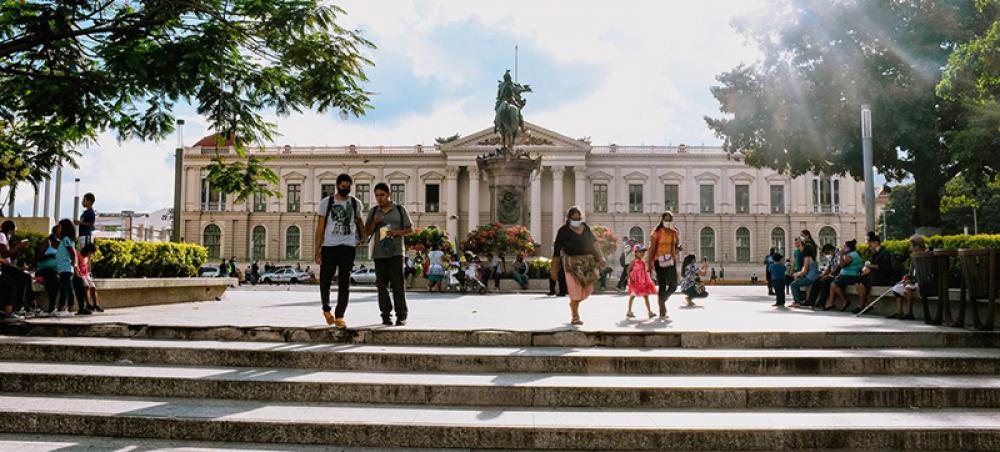Just Earth News | @justearthnews | 06 Apr 2022

Image: Unsplash/Mauricio Cuéllar
New York: The introduction of a series of measures in El Salvador in response to a rise in gang killings, has prompted the grave concern of the UN human rights office, which noted on Tuesday a pattern of “unnecessary and excessive use of force” by police and military forces.
Since the state of emergency adopted on 27 March, police and military personnel in the country have been deployed to some gang strongholds, in an effort to contain the violence.
But, according to recent reports, more than 5,747 people have been detained without an arrest warrant, and some have reportedly “been subjected to alleged cruel, inhuman, or degrading treatment”, said Liz Throssell, spokesperson for the Office of the High Commissioner for Human Rights (OHCHR).
Legal crackdown
In addition to the state of emergency, OHCHR is also deeply concerned about certain amendments to criminal law and criminal procedure.
Those raise serious concerns from the perspective of international human rights law and standards, through their imposition of elevated sentences, including with respect to children, in combination with weakening of due process guarantees, the UN rights office said in a statement.
Speaking to the reporters in Geneva, Ms. Throssell added that the changes meant “criminal trials could now be held in absentia, in the case of alleged gang members, or presided over by so-called “faceless” judges whose identity remained “confidential”.
A two-year limit on pretrial detention had been abolished, and teenagers associated with gangs, who were found guilty of serious offences, might now be sentenced as adults and serve their sentence in adult rather than juvenile detention.
“Those aged 12 to 16 years must now serve a 10-year term of imprisonment instead of 7 years; and those aged 16 to 18 years must serve a 20-year term”, she added.
Challenges of gang violence
OHCHR recognized the challenges posed by gang violence in El Salvador, and the State’s duty to ensure security and justice, said Ms. Throssell.
However, she said it was imperative for the Government to act in compliance with international human rights law.
Highlighting the right to life, the right not to be subjected to torture, fair trial principles and the presumption of innocence, OHCHR reminded that those rights should be protected, even during states of emergency and especially in the case of children.
Treating prisoners humanely
Responding to journalists’ questions, Ms. Throssell said that it was necessary to ensure that prisoners were treated humanely and were provided with access to food, water, and sanitation.
“Given that prisons in many parts of Latin America are overcrowded and have problems with inmate violence, reports that juveniles would be held with adults are particularly troubling”, she said.
She added that the OHCHR regional office in Central America is engaged with the region’s Governments over human rights concerns.
Roots of violence
Also briefing journalists, Boris Cheshirkov, UN refugee agency (UNHCR) Spokesperson, said that the levels of gang violence had caused what is “primarily an internal displacement situation”, with tens of thousands of people forced from their homes around the country.
According to recent data, there are more than 114 thousand internally displaced across El Salvador.
Mr. Cheshirkov added that UNHCR looked “forward to the lifting of Title 42 border restrictions by the United States, which would be an essential step for restoring the right of asylum”.
The Title 42 restrictions were imposed during the COVID-19 pandemic and allow Border Patrol agents to quickly turn away migrants at the southern border of the United States arguing that they posed a threat to public health.
For the past five years, poverty, food insecurity, climate shocks and violence have pushed, on average, some 378,000 Central Americans a year, to seek refuge or asylum in the United States.